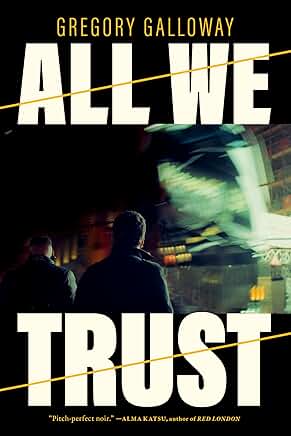 When I first read The Great Gatsby (1925) for school (not 1925), it was taught almost like a British novel. We had to identify the Arthurian allegories, the references to Keats and the Romantic poets, and it was treated as a novel of manners like Jane Austen or William Makepeace Thackeray. What wasn’t discussed was how Fitzgerald’s novel was an examination and critique of the “American Dream,” how it was unachievable illusion and a con. It’s not even American.
When I first read The Great Gatsby (1925) for school (not 1925), it was taught almost like a British novel. We had to identify the Arthurian allegories, the references to Keats and the Romantic poets, and it was treated as a novel of manners like Jane Austen or William Makepeace Thackeray. What wasn’t discussed was how Fitzgerald’s novel was an examination and critique of the “American Dream,” how it was unachievable illusion and a con. It’s not even American.
Initially dismissed as a “mediocre crime novel,” Gatsby would go on to influence countless writers, including Raymond Chandler, Dashiell Hammett, and Chester Himes. I don’t know if he explicitly influenced British crime writers, but a number of them are preoccupied with the same themes, themes I’ve dealt with in my own novels especially Just Thieves(2021) and the latest, All We Trust (July 2025). In fact, my interest in exploring the illusion of the American Dream, led me straight from my home in Connecticut to foreign shores, thanks to Paul Burke at CrimeTime and my editor Carl Bromley (from Portsmouth) for recommending UK writers they thought I might learn from.
A few that informed my writing were James Curtis, Ted Lewis, and Derek Raymond.
Curtis (There Ain’t No Justice and They Drive by Night, 1937 and 1938 respectively) wrote about the whys of crime, how economic disparities drive desperate people to desperate measures. Curtis was admired for his social realism and his novels are filled with dialect and slang, “ordinary working people vividly portrayed,” and devious and corrupt police. (Note: They Drive by Night was made into a 1938 film, not to be confused with the US 1940 film of the same name, starring Humphrey Bogart and George Raft, which was based on A.I. Bezzerides’ 1938 novel, Long Haul).
I’d read Jack’s Return Home (1970) a couple of decades ago, but that was the extent of my Ted Lewis. I’d forgotten what a fantastic writer he was. I turned to GBH (1980) and Plender (1971). Both novels deal with betrayal and corruption. GBH – another novel about illusions and delusions set among the ashes of a decrepit seaside “resort” - helped inform perspective, structure, and tone; and Plender, which deals with small-town friends and their betrayal and revenge, aligned closely with my own novel (sometimes too closely, and I had to approach it carefully, not wanting to be too influenced. Fitzgerald famously wrote Willa Cather a letter apologizing for inadvertent “plagiarism” of her 1923 novel A Lost Lady on Gatsby. Cather graciously dismissed Fitzgerald’s concerns, acknowledging that they both dealt with similar, universal themes).
I’ve been called a “dark” writer (“pitch-black noir” as one reviewer put it), but I assume that’s by people who’ve never read Derek Raymond. There are few writers darker than Raymond (maybe none. “none more black”), and while my novels don’t have the violence or the “joy and pain of going too far,” I share an affinity with Raymond’s cynicism, sardonic humor, and the nameless narrator of the “Factory” series (I was especially awestruck by He Died with His Eyes Open, How the Dead Live, and I Was Dora Suarez) as he tries to come to grips with a broken, corrupt, uncaring world that is beyond his control, and at times, understanding (which, is really not that far removed from Nick Carraway’s perspective in Gatsby - which has the ugly violence committed by “careless people” – but oceans apart in intensity and excess. No one’s going to confuse any of Raymond’s novels as a book of manners. Bad manners, absolutely.). Or as Raymond himself described his theme: “the universal human struggle against the general contract, whose terms are unfillable, and where defeat is certain." That’s the dream, the bullshit “pursuit of happiness” we get sold as somehow uniquely “American” (the same way we’re convinced that “red, white, and blue” somehow only refers to the USA, even though it’s used by 28 other countries in their flags). The broken economics, the rigged social structures, the desperation of the “have nots” are obviously a significant part of the American authors I love, from Chandler and Hammett to David Goodis and Jim Thompson, but it’s there too in the Brit Grit writers, who expose the truth, the self-centered delusion at the heart of the “American Dream.”

All We Trust by Gregory Galloway is published by Melville House £16.99 HBK 10 July 2025